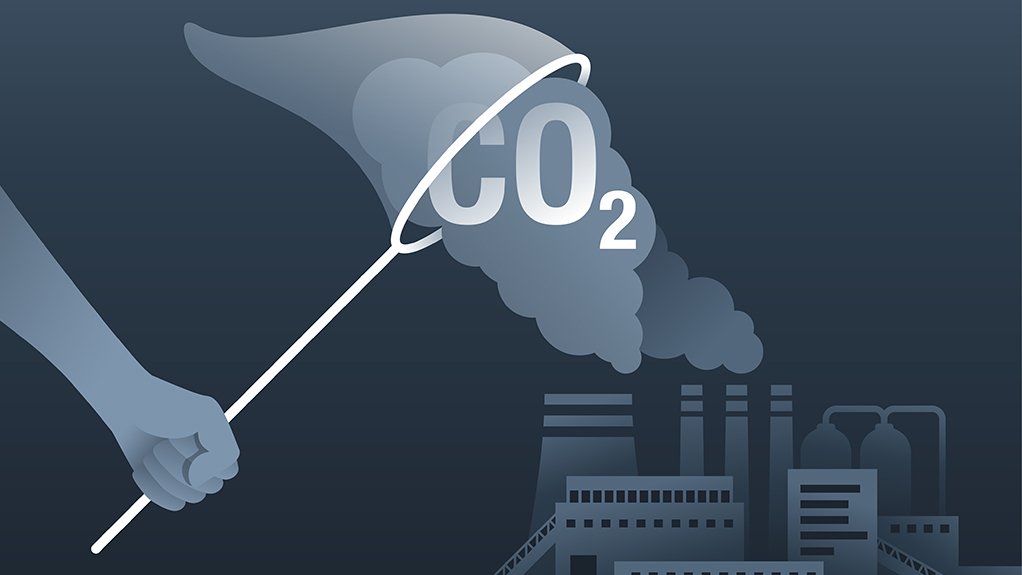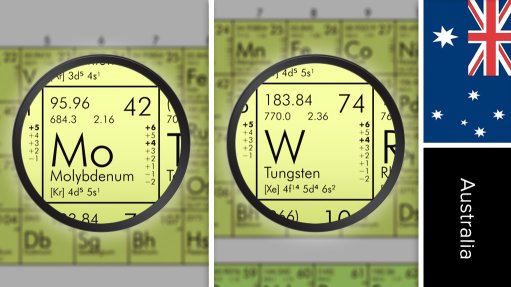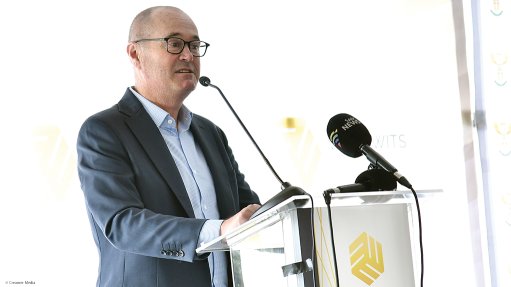S Africa’s CCS-specific legislation playing catch-up


CAPTURING THE IMAGINATION Carbon capture and storage and potentially carbon capture utilisation in the future, could play an important role in significantly reducing carbon dioxide emissions, but the technologies are a “work in progress”
While South Africa’s environmental legislative framework is complex and robust in terms of support for the Constitutional right to a safe and non-harmful environment, the country’s legislative environment does not contain carbon capture and storage- (CCS-) specific provisions, says mining law firm Beech Veltman CEO Warren Beech.
“There is, however, overarching legislation, such as the National Environmental Management Act (Nema), the Air Quality Act, the Waste Act and the related regulations and bylaws that make provision for, and could accommodate, the successful implementation of CCS.”
Beech explains that, despite this overarching legislative framework, the challenge facing CCS solutions lies in the details, or lack thereof, in the overarching legislation.
These challenges also include lengthy approval timelines, low capacity within government departments and inconsistent interpretation and application of legislative requirements.
Some legislative and policy developments regarding the country’s becoming carbon neutral often do not come to the attention of the broader public. This often leads to the perception that South Africa does not have a robust environmental legislative framework in place, but this perception is not correct, notes Beech.
From a policy perspective, in addition to South Africa’s subscription to the Paris Agreement, and the Low Emission Development Strategy 2050 that was submitted by government to the United Nations Framework Convention on Climate Change in February 2020, the South African government approved the establishment of the Presidential Climate Change Coordinating Commission (PCCCC) on September 10, 2020, he explains.
“This was an important development, as the stated objective of the PCCCC was to advise on South Africa’s climate change response and the long-term just transition to a low carbon economy and society.”
Moreover, the implementation of Phase 1 of the Carbon Tax Act began on June 1, 2019. The Act stipulates that all companies that conduct activities that result in greenhouse gas (GHG) emissions above the threshold listed in Schedule 2 are required to pay carbon tax.
The initial rate of the carbon tax on GHG emissions for Phase 1 is R120/t of carbon dioxide equivalent of GHG emissions. The Carbon Tax Act contemplates that the yearly rate of tax will be increased by the amount of the consumer price inflation, plus 2% for the preceding tax period. During the first phase, allowances are available to reduce the amount of tax payable.
Beech states that another recent legislative development was the amendment to the Carbon Offset Regulations, published on July 8, 2021. The regulations set out the criteria for carbon offset projects and the procedures for taxpayers to claim carbon offset allowances.
These tax-free allowances assist companies that emit GHGs in reducing their emissions and carbon tax liability by investing in mitigation projects. The first version of the Carbon Offset Regulations was gazetted in November 2019 and amended in July last year.
Collectively, the various initiatives and developments are aimed at addressing decarbonisation holistically through the transition to renewable-energy sources from fossil fuel-derived energy, and the management of GHG emissions by traditional fossil-fuelled energy sources, explains Beech.
“The general approach is that decarbonisation must be looked at holistically, particularly in view of South Africa’s unique socioeconomic reality, and to ensure a just transition, which acknowledges the ongoing important role that South Africa’s coal-fired power stations play.”
CCS, and potentially carbon capture utilisation in the future, could play an important role in significantly reducing carbon dioxide emissions, but the technologies are a “work in progress”, as they are not necessarily viable in terms of affordability, reliability and sustainability.
While the current legislative framework and supporting policies can accommodate CCS, the approvals processes and inherent lengthy timeframes mean that any CCS project will take many years to implement, he adds.
“This, together with the inevitable delays throughout the process, means that companies considering CCS would not necessarily regard it as a short-term solution and emissions will continue at higher levels until there is a transition to lower carbon energy sources, or it becomes easier to implement technology such as CCS,” concludes Beech.
Article Enquiry
Email Article
Save Article
Feedback
To advertise email advertising@creamermedia.co.za or click here
Announcements
What's On
Subscribe to improve your user experience...
Option 1 (equivalent of R125 a month):
Receive a weekly copy of Creamer Media's Engineering News & Mining Weekly magazine
(print copy for those in South Africa and e-magazine for those outside of South Africa)
Receive daily email newsletters
Access to full search results
Access archive of magazine back copies
Access to Projects in Progress
Access to ONE Research Report of your choice in PDF format
Option 2 (equivalent of R375 a month):
All benefits from Option 1
PLUS
Access to Creamer Media's Research Channel Africa for ALL Research Reports, in PDF format, on various industrial and mining sectors
including Electricity; Water; Energy Transition; Hydrogen; Roads, Rail and Ports; Coal; Gold; Platinum; Battery Metals; etc.
Already a subscriber?
Forgotten your password?
Receive weekly copy of Creamer Media's Engineering News & Mining Weekly magazine (print copy for those in South Africa and e-magazine for those outside of South Africa)
➕
Recieve daily email newsletters
➕
Access to full search results
➕
Access archive of magazine back copies
➕
Access to Projects in Progress
➕
Access to ONE Research Report of your choice in PDF format
RESEARCH CHANNEL AFRICA
R4500 (equivalent of R375 a month)
SUBSCRIBEAll benefits from Option 1
➕
Access to Creamer Media's Research Channel Africa for ALL Research Reports on various industrial and mining sectors, in PDF format, including on:
Electricity
➕
Water
➕
Energy Transition
➕
Hydrogen
➕
Roads, Rail and Ports
➕
Coal
➕
Gold
➕
Platinum
➕
Battery Metals
➕
etc.
Receive all benefits from Option 1 or Option 2 delivered to numerous people at your company
➕
Multiple User names and Passwords for simultaneous log-ins
➕
Intranet integration access to all in your organisation

















